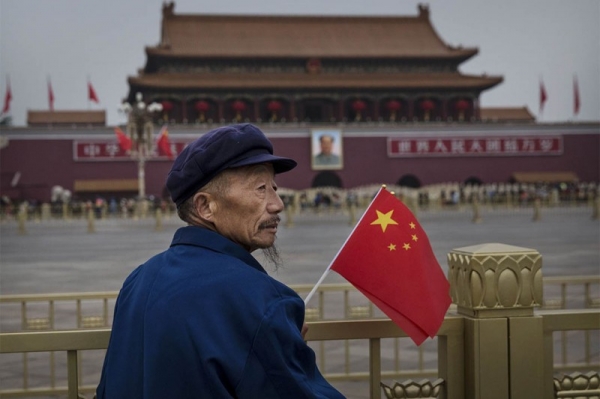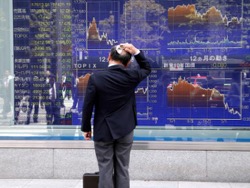
Inspired by the news about a British exit from the EU, investors have missed perhaps the most important change in the market over the past year and a stable devaluation of the yuan against the dollar. Analysts believe that the actions of the Chinese Central Bank can hide serious problems, and not the simple desire to help their producers.
The slowdown of China’s economy is now the main threat to the world of Finance, I am sure a Professor of Economics at Harvard University and former chief economist of the International monetary Fund (IMF) Kenneth Rogoff. The ratio of external debt of China to GDP to 30.1%, according to a recent assessment of the Bank for international settlements (BIS). This may mean that the whole phenomenon of the “Chinese economic miracle” of recent years was based on an unstable credit bubble, says Rogoff in an interview with the BBC. He adds that China is now also experiencing and “great political revolution”, fighting corruption in large corporations that makes the economy more dependent not from the actions of the authorities, and from the behavior of consumers, and it adds stability.
After the September meeting, members of the governing Council of the Federal reserve system (fed) and a failure of the head of Janet Yellen to raise its key interest rate, the PRC authorities decided to raise the rate of national currency to 6,6513 yuan per dollar. After the G20 meeting in Hangzhou in September, the yuan has appreciated against the dollar by 0.3%.
But overall in recent months, Chinese officials only lowered the yuan. This fact investors are ignoring what could be their grave mistake.
Power is the second largest economy in the world took advantage of the fact that the media in recent months have been busy detailed coverage of Brexit, and then the Olympic games in Rio and the US elections, and slowly lowered the yuan against the dollar and a weighted basket of currencies, having escaped the global financial panic. It is worth noting the ability of China to learn from their mistakes: after the devaluation of the yuan in August 2015 global markets for some time have fallen into chaos, says Marketwatch.
What investors did not pay attention to the movement of the Chinese currency, does not mean that they should not have to do it. A weaker yuan will help to support the economy and to delay the seeming inevitable reckoning in the domestic and foreign debts, which got a little out of control government.
The gradual depreciation of the Renminbi is used for masking problems associated with excess debt load, which is threatening the global economy more than the British exit from the EU, says Michael Aron, chief investment strategist at State Street Global Advisors.
“It is obvious that Chinese officials have benefited from the market interest theme Brexit,” says Aaron. The Chinese authorities announced a devaluation of the yuan by 1% on June 23, the day of the referendum in the UK, and the procedure went smoothly. More significant depreciation of 2% — occurred on 11 August 2015, then, China has repeatedly blamed the panic on the market, which followed the news.
Last year the news of the devaluation of the yuan has cost the people’s Bank of China not less than $200 billion in market support during the month and a $150 billion capital outflow in the same period.
On charges of dissemination of false information and market manipulation, were arrested about 200 people, including the staff of the Chinese investment Bank Citic Securities, members of the Chinese Commission on regulation of securities market (CSRC) and even a few correspondents in the financial media. In total, over three days, the yuan was devalued by 4.6% to 6.4 yuan per dollar.
After that stable yuan depreciation for the whole year practically was not observed in financial markets. According to Aron, it’s not the scale of the impending problems, and inattention of investors. “First of all, the devaluation may indicate a further deterioration in the second largest economy in the world. But it also could be an attempt to support their producers and slowing GDP growth due to the export of deflation,” said Aron.
Distressed debt can destroy China’s economy
A weaker yuan helps China to postpone for a time to find the best solution for getting rid of debt. The debt situation in the country worsen opportunistic monetary policy, soft regulation and poor lending practices.
The ratio of corporate debt China — the highest in the world and is 160% of GDP.
In the past year to repay existing debt it took 44% of new issuance. According to the forecast of the International monetary Fund, the potential loss of PRC from defaults on loans may not exceed 7% of GDP. If such exceptional policy lending continues, by 2019 this figure may increase to a record 15%, experts warn McKinsey & Company.
A weak yuan hides a more important problem
Tightening control over the movement of capital helped to limit the outflow of funds from China. But the authorities found more sophisticated ways to disguise the signs of capital flight. This is important: concerns about capital outflow from the second world economy became the reason for the last two active sales of assets in RMB.
According to Goldman Sachs, from October 2015 to about $170 billion in RMB — 50% more than according to the Central Bank of China flowed to the offshore market in Hong Kong.
By the financial company Nomura Holdings, China hides the outflow of capital, overestimating the import of offshore companies, such as American Samoa. “How else can you perceive the astronomical growth of imports from Samoa? Do we really believe that the Chinese demand in coconut oil has increased more than 700%?” says Aron.
Over the past 12 months the dollar has risen nearly 4% against the yuan traded in the land market of China (now the rate is about 6.67 yuan to the dollar).
Even worse indicators of the Chinese currency looks compared to the neighbors on the basket of reserve currencies: the yuan over the past year, lost about 7% of the cost.
Analysts fear that if the devaluation of the “out of the shadows,” world markets for the third time will suffer from volatility caused by the monetary policy of China.
China is waiting for the fed decision
News, is able to stimulate the active actions of the Chinese authorities, may be the decision of the U.S. Federal reserve to raise interest rates. This did not happen at the August and September meetings of the American regulator, but before the end of the year will be held two more meetings on 2 November and 14 December. Amid expectations of Janet Yellen’s testimony in August, the offshore RMB (traded in Hong Kong) by the end of the month fell to 6.68 yuan per dollar, says the South China Morning Post. Over the last two weeks of summer, the currency has lost about 0.4%. With regard to Renminbi traded in mainland China, the figures are similar: loss of 0.13% for the current week and 0.49% for two weeks.
“The market is comfortable in the current situation of low volatility. Despite the fact that the U.S. Central Bank is probably worried that investors can feel too relaxed and take a bit more risks, it is unlikely the fed will be decided on a sharp change in the financial space, so as not to trigger a massive collapse of the market,” says trader Stephen Innes.
However, the likelihood of increases in US interest rates is still there, so China hedged: over one and a half months the people’s Bank of China regularly strengthens a bit rate of the yuan against the dollar. Thus, if any of the next meetings, the fed decided to raise the base rate, the Renminbi will be ready.








